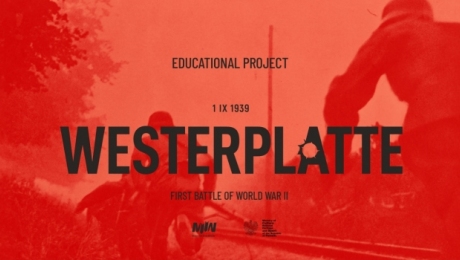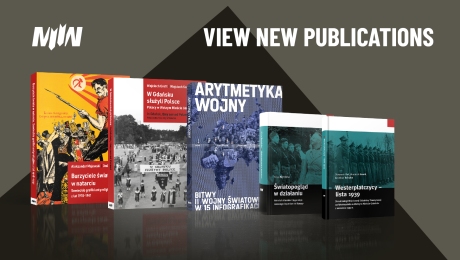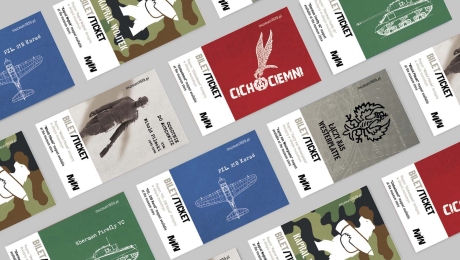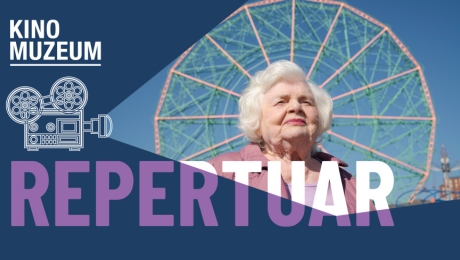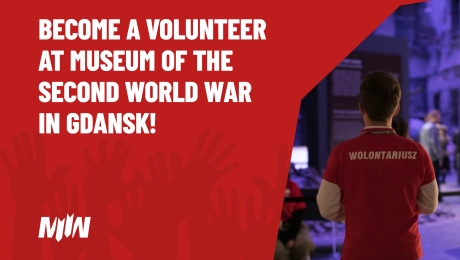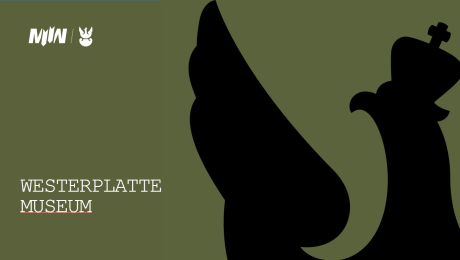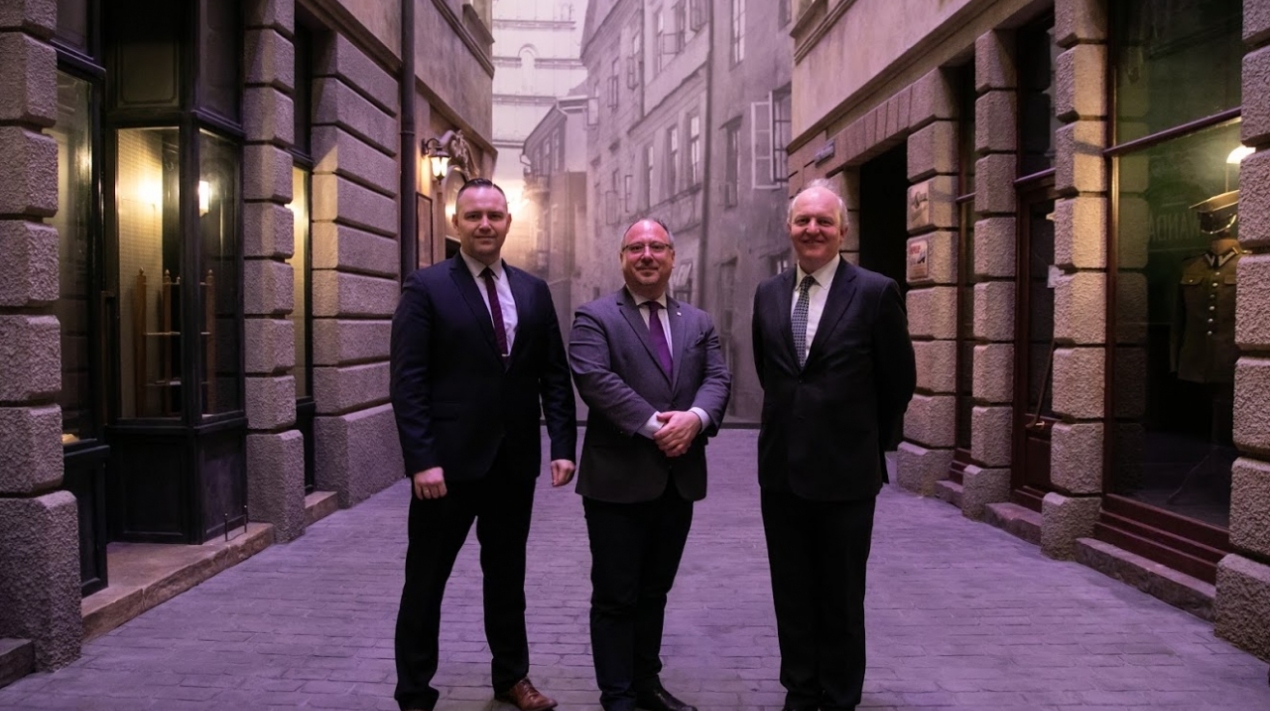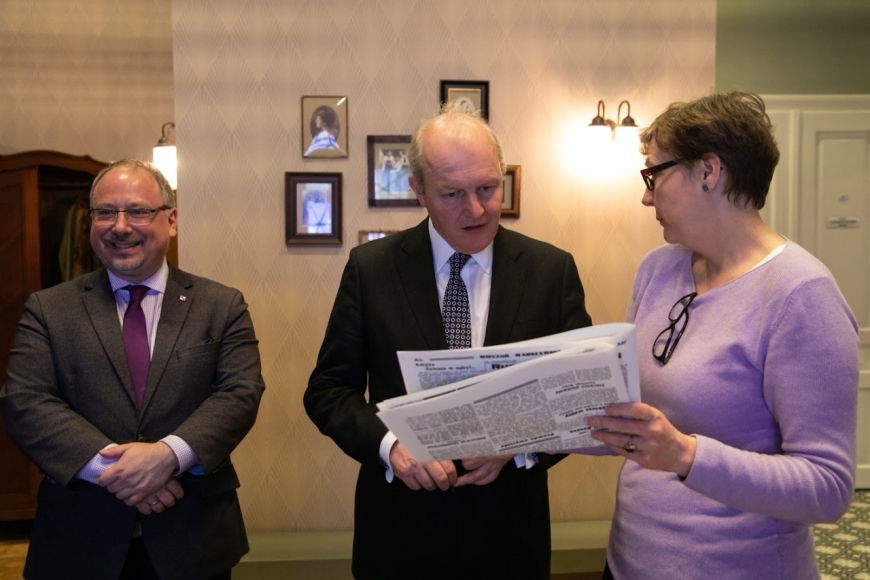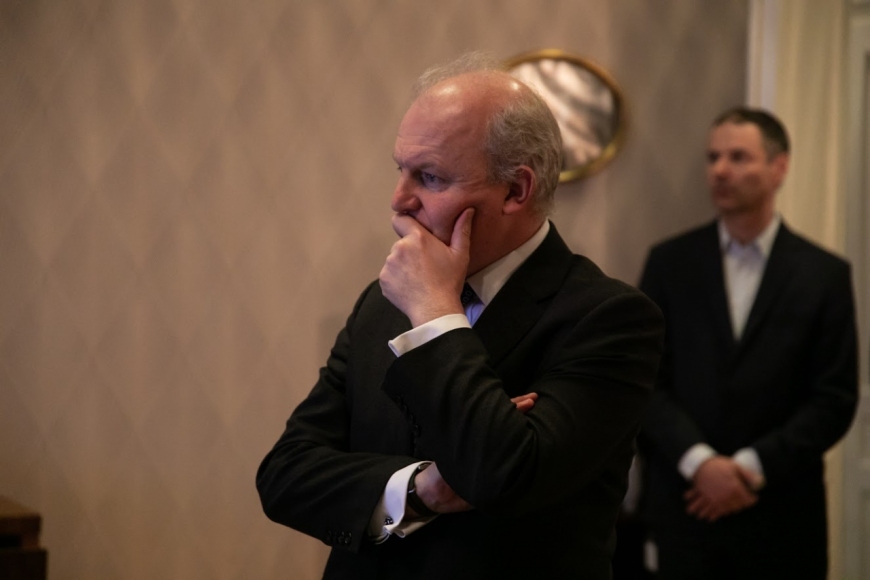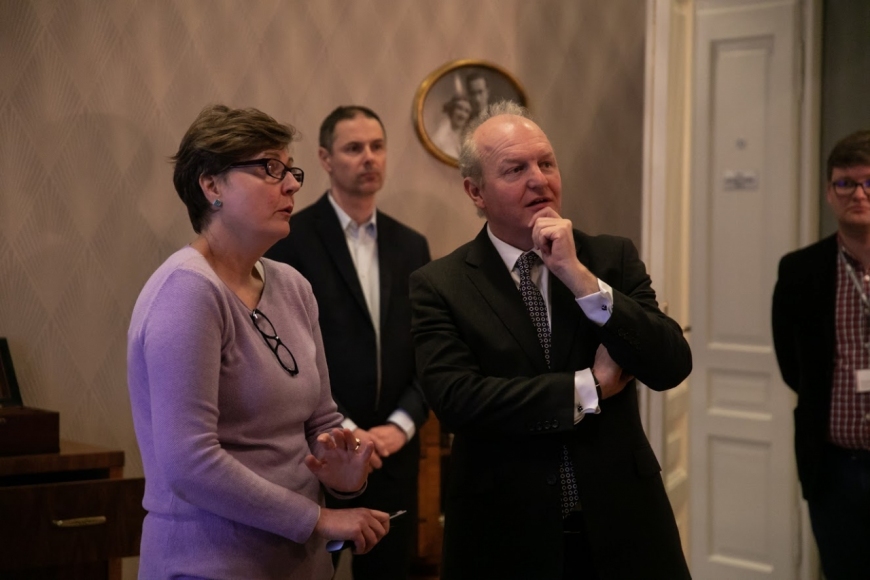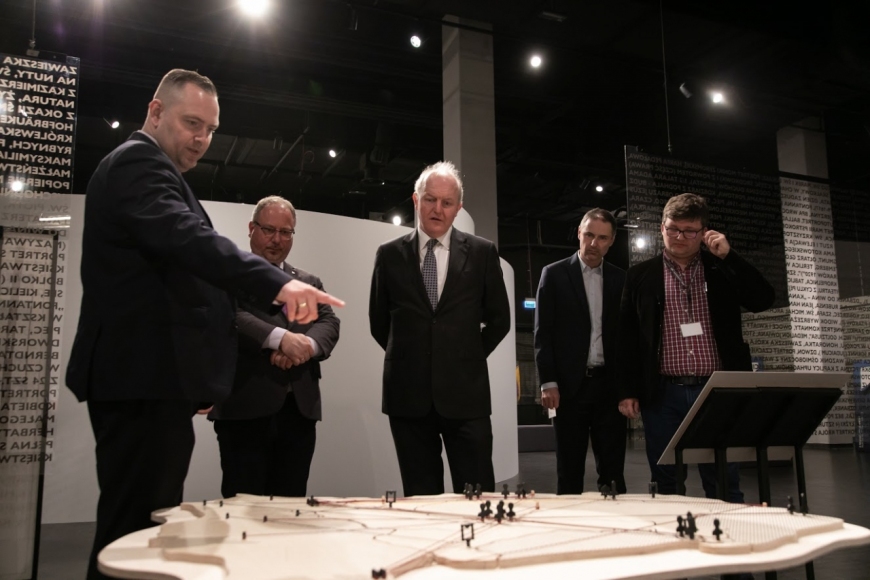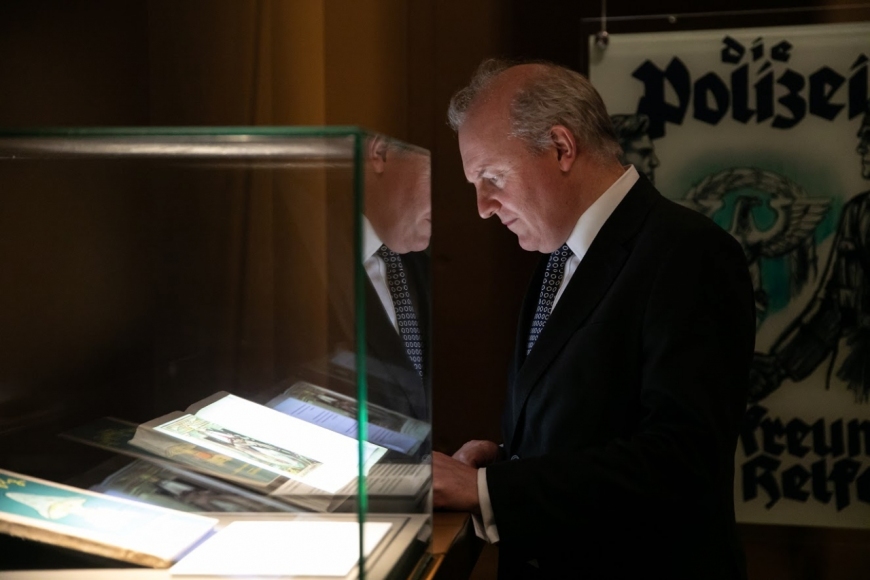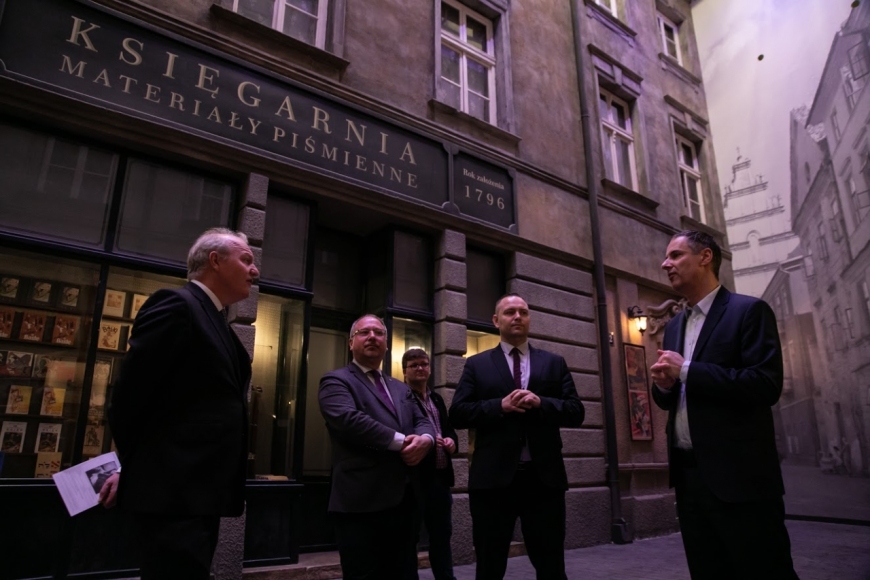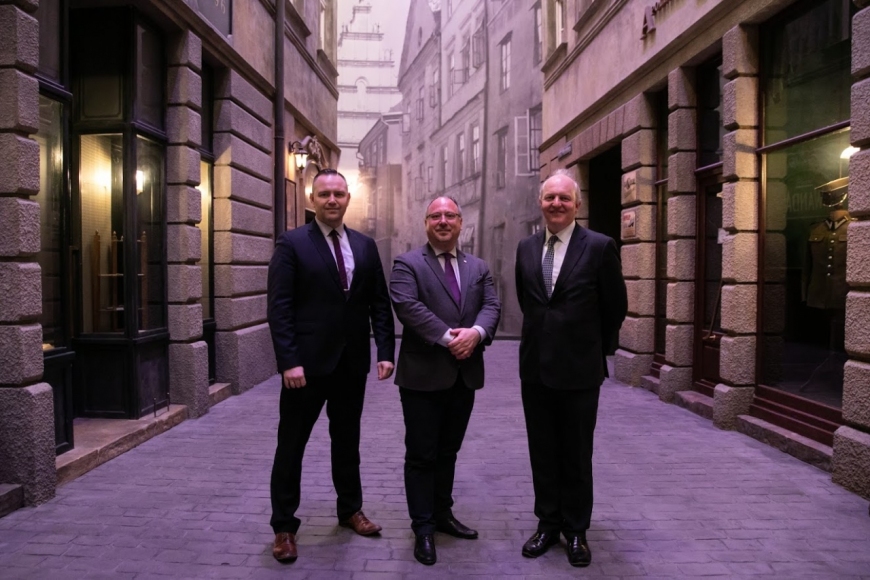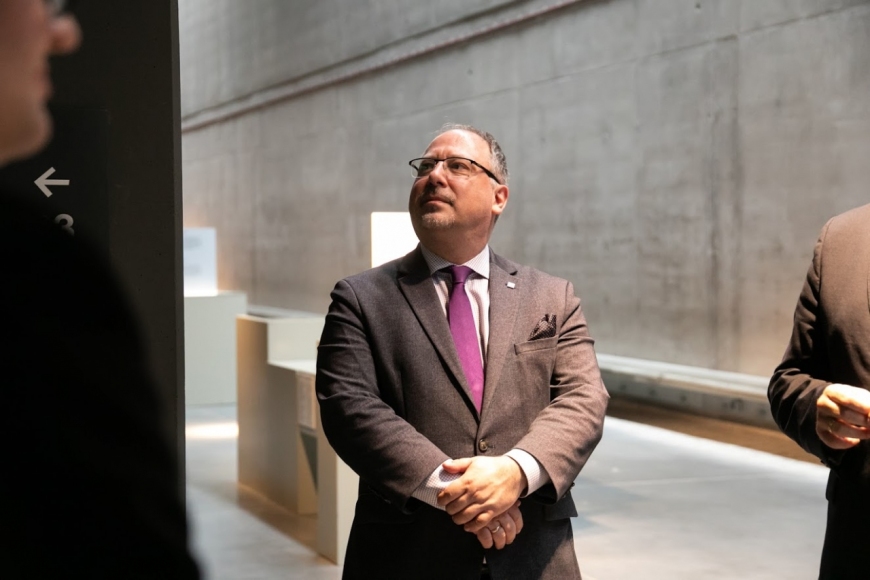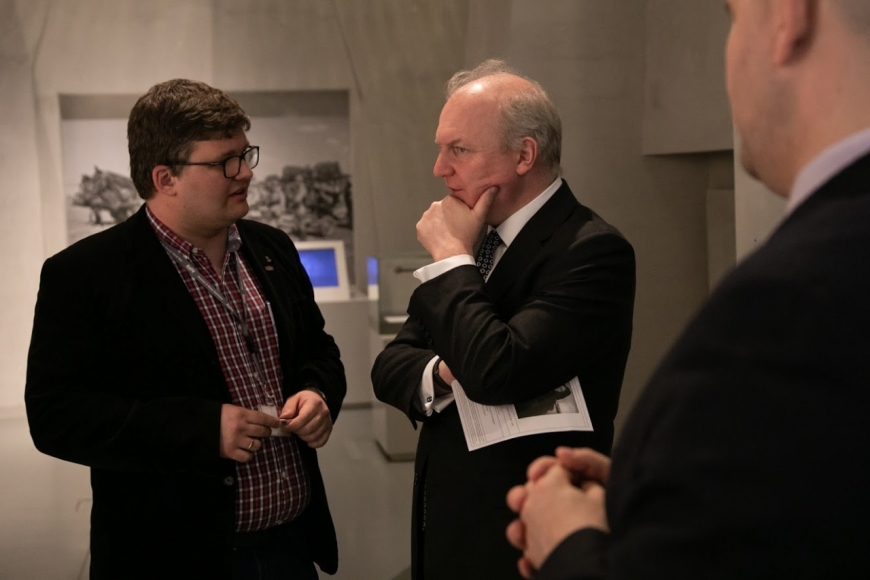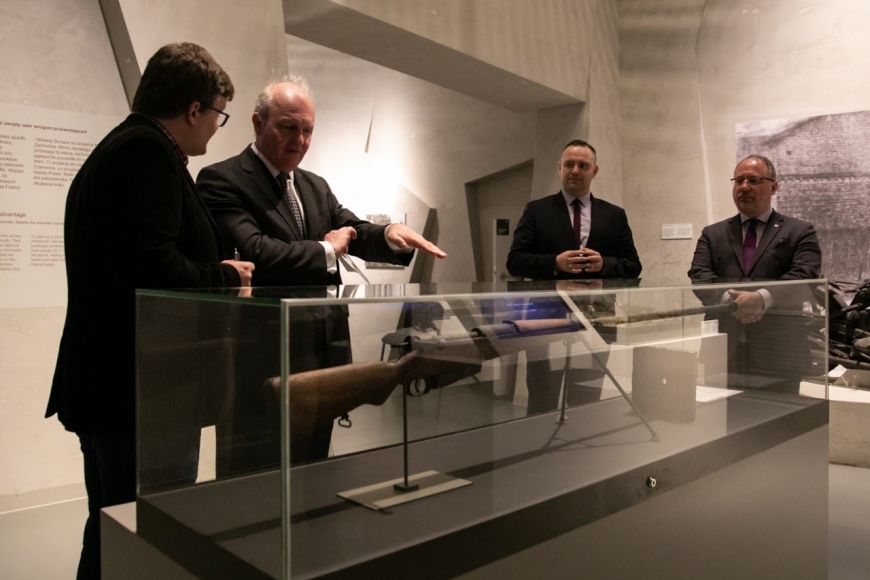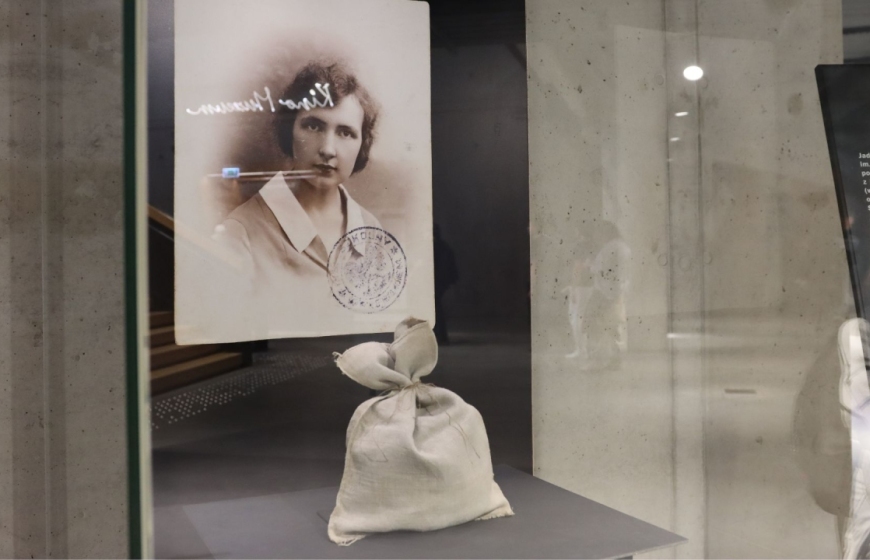Polish Ambassador to London, Arkady Rzegocki, and General Director of the National Army Museum in London, Justin Maciejewski, visit the Museum of the Second World War in Gdańsk
On 8 April this year, the Director of the Museum of the Second World War in Gdańsk, Karol Nawrocki, met with the Polish Ambassador to London, Mr Arkady Rzegocki, and Director General of the National Army Museum in London, Mr Justin Maciejewski.
The main aim of the Directors’ meeting consisted in establishing cooperation between the organisations. Representatives of the two institutions declared to collaborate in respect of exhibition, educational and scientific undertakings.
Following the meeting, the Director, Karol Nawrocki, guided the guests round the Museum’s Main Exhibition. The guests were much impressed by it.
National Army Museum presents the history of the British army from 1066 to the present day. Its exhibitions show the army’s influence on the history of the country as well as on the international history. Exhibits collected there differ from those gathered in other London institutions covering similar subject matter, namely Imperial War Museum and Firepower – The Royal Artillery Museum. The former one presents objects referring not only to warfare, but also those illustrating experiences of civilians. Meanwhile, Firepower tells the story of the artillery. The idea to establish the institution arose in the 1950s. The Museum owes its existence to great efforts made by Field Marshal Gerard Templer, who participated extremely actively in collecting money needed to create the National Army Museum. The Museum was officially established with a royal decree of 1960. Its mission consisted in collecting, protecting and exhibiting for wide audience objects and documents connected with regular and auxiliary British armed forces. Moreover, its tasks included encouraging the study of history and tradition.
The part covering the Great World Wars presents exhibits relating to the participation of the British troops in the two great conflicts, starting with the military recruitment for the fronts of the First World War, up to the Partition of India in 1947.






